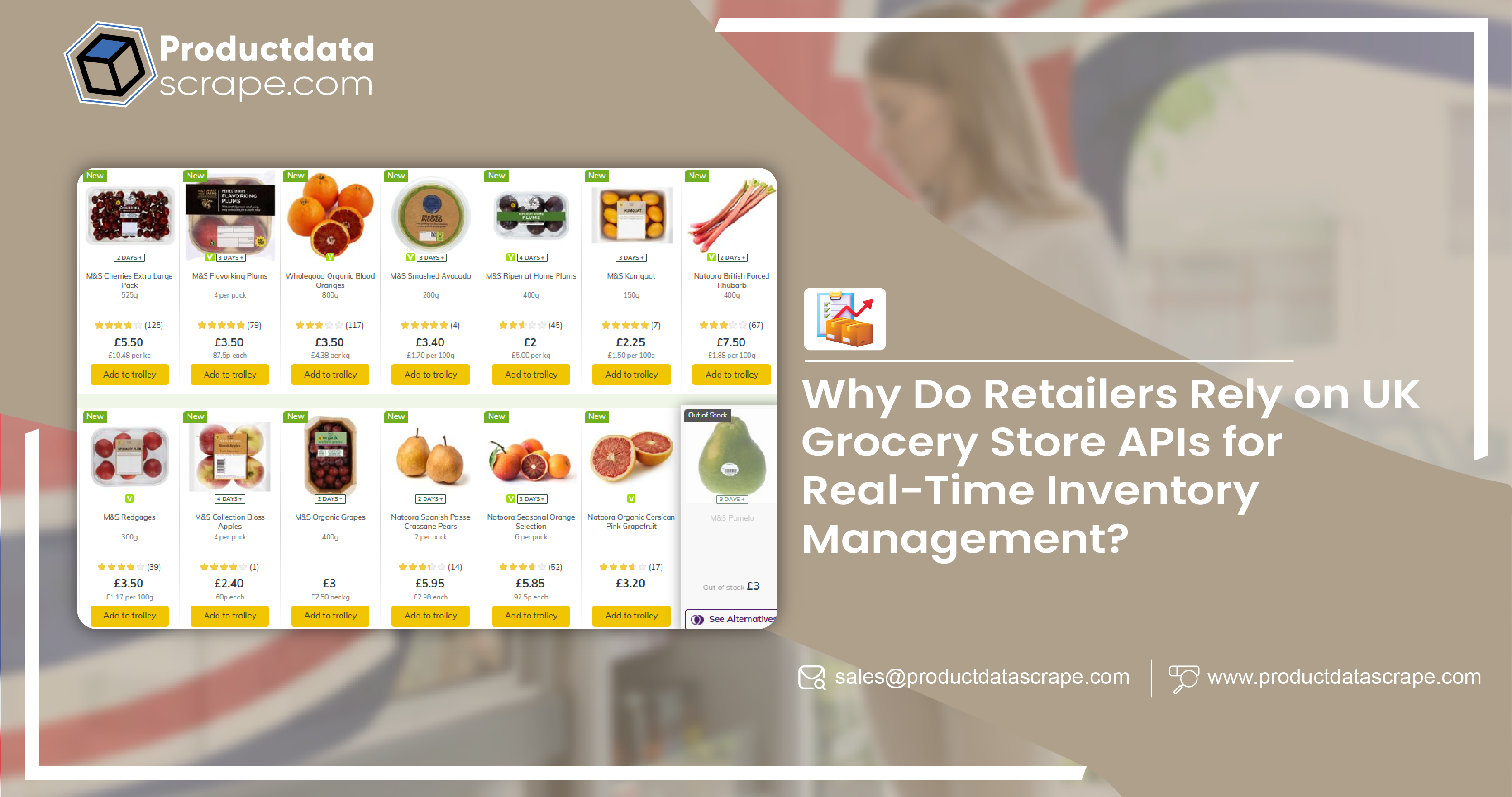
Introduction
The UK grocery market is rapidly evolving with digital transformation, driven by online shopping demand, real-time inventory tracking, and personalized experiences. UK Grocery Store APIs enable seamless integration between grocery platforms, third-party apps, and analytics tools, enhancing data accessibility. These APIs allow businesses to efficiently fetch product details, pricing, and stock availability.
With the rise of UK Supermarket Data Scraping, companies can extract valuable insights to optimize operations and improve decision-making. Additionally, APIs streamline supply chain management by ensuring accurate data exchange between retailers and suppliers.
A Real-Time Grocery Pricing API UK helps businesses monitor price fluctuations and adjust competitive pricing strategies dynamically. Major players like Tesco, Sainsbury's, and ASDA leverage API solutions to improve consumer engagement and operational efficiency. From enhancing e-commerce experiences to optimizing grocery delivery services, API integration transforms the UK grocery industry, making data-driven decision-making more effective than ever.
Understanding Grocery Store APIs
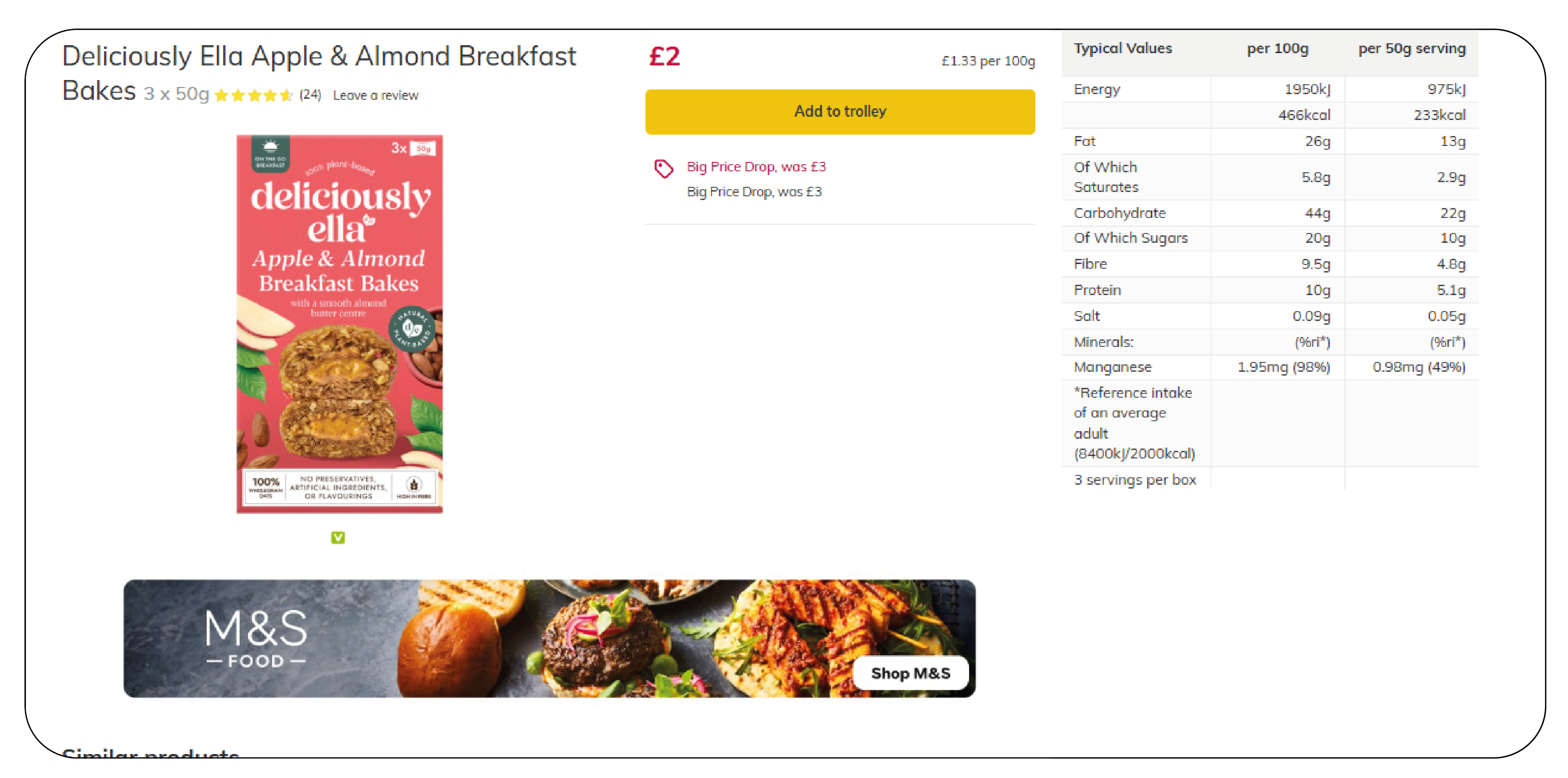
Grocery store APIs serve as bridges that connect grocery retailers with developers, third-party applications, and enterprise systems. This UK Grocery Delivery Data API allows users to access various datasets, including:
- Product Data: Name, description, category, nutritional information, and allergens.
- Pricing and Promotions: Real-time pricing updates, discounts, and loyalty rewards.
- Inventory and Stock Levels: Availability of items across different locations.
- Order Management: Cart integration, order placement, tracking, and returns.
- Delivery and Pickup Services: Estimated delivery time, slot booking, and store pickup.
- Customer Data: Personalized recommendations based on shopping history.
Major UK Grocery Retailers Offering APIs
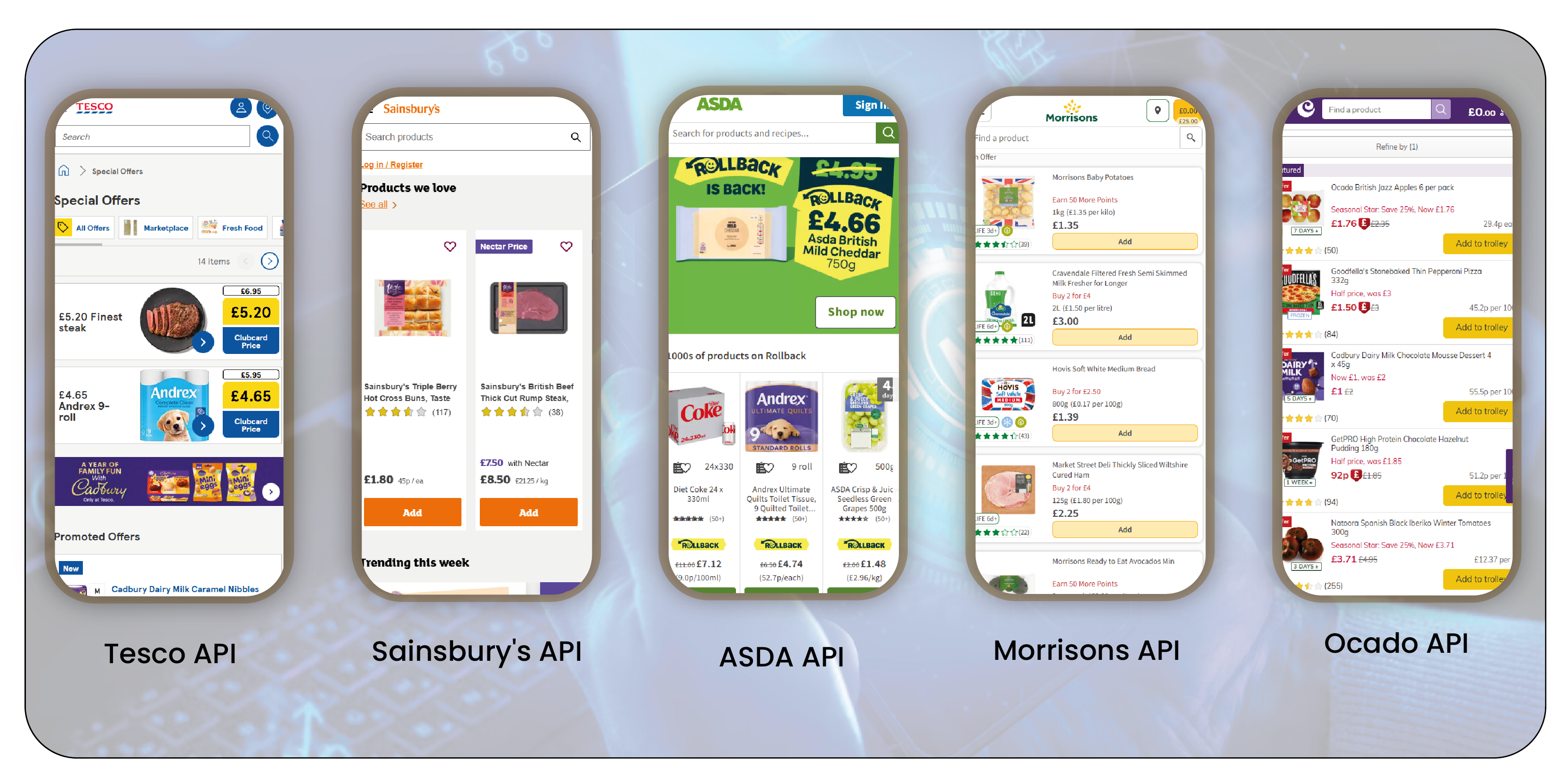
Tesco API
Tesco, one of the largest supermarket chains in the UK, provides an API that allows developers to access its extensive product catalog, nutritional information, and pricing details. The Tesco API enables businesses to:
- Search for grocery items.
- Retrieve real-time prices and promotions.
- Access nutritional information and dietary filters.
- Integrate with online shopping carts for streamlined purchases.
Sainsbury's API
Sainsbury's API is designed to provide developers with essential grocery data to enhance e-commerce applications. Its key features include:
- Access to product details, including images and descriptions.
- Price tracking for better customer insights.
- Inventory availability for improved logistics planning.
ASDA API
ASDA's API allows integration with its grocery platform, offering businesses a way to retrieve:
- Product information, pricing, and promotions.
- Stock level tracking across multiple stores.
- Order processing for online and in-store purchases.
Morrisons API
Morrisons provides an API that connects with its online grocery shopping system. This API offers:
- Comprehensive product information, including fresh food items.
- Pricing updates and discount tracking.
- Order fulfillment and delivery schedule.
Ocado API
Ocado, the UK's leading online-only grocery retailer, offers API services that enable:
- Access to an extensive range of grocery products.
- Smart recommendations based on customer preferences.
- Integration with automated fulfillment centers for optimized deliveries.
Benefits of Using Grocery Store APIs
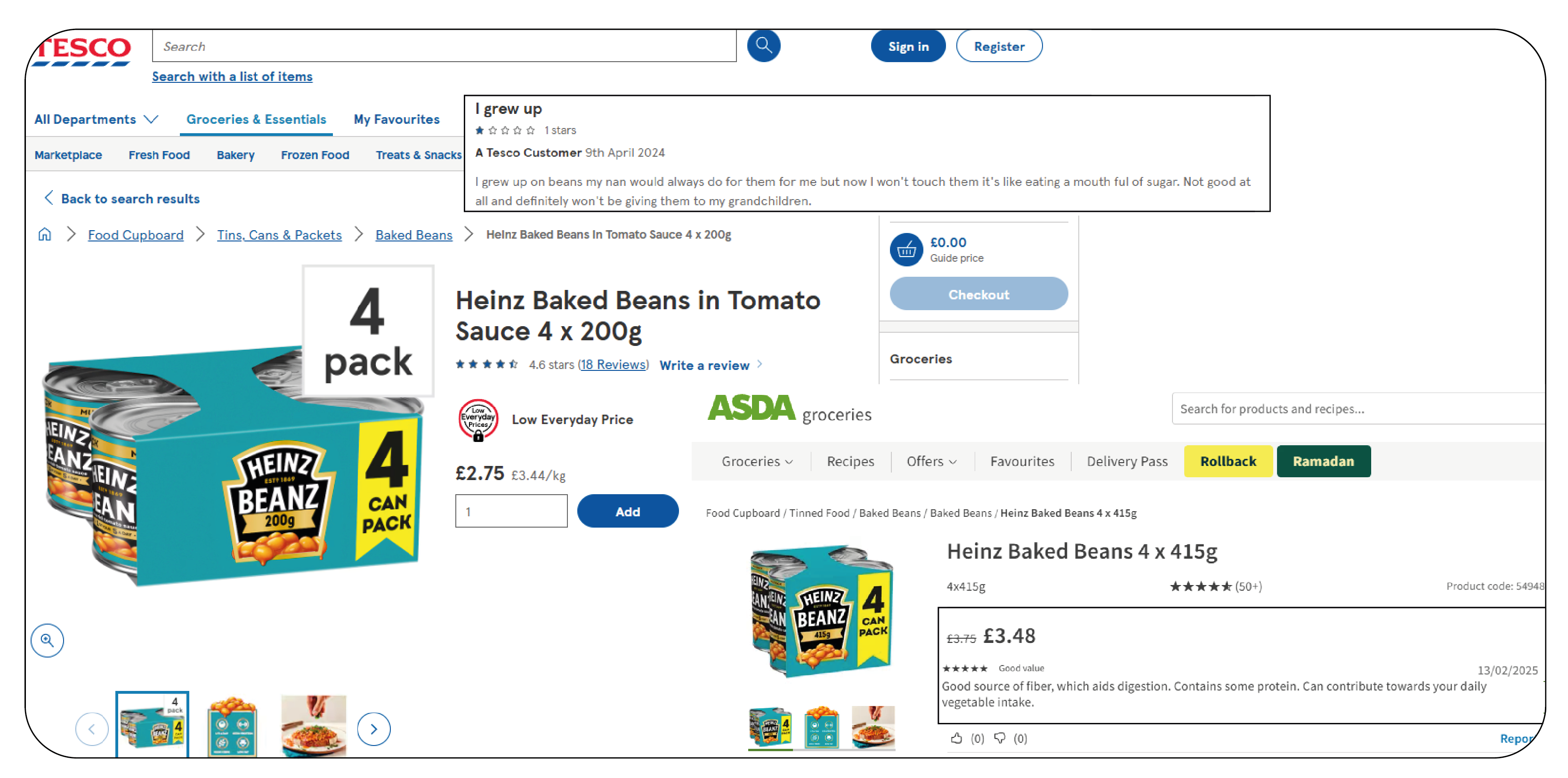
Grocery store APIs offer seamless access to real-time product data, pricing, stock availability, and delivery updates. Businesses can optimize inventory, enhance customer experience, and stay competitive by integrating automated data retrieval for market analysis, trend tracking, and personalized shopping experiences.
- Enhanced Shopping Experience: The UK Online Grocery Scraping API enables retailers to deliver a personalized shopping journey by analyzing customer purchase patterns. With access to real-time consumer data, businesses can offer tailored product recommendations, exclusive discounts, and customized promotions, enhancing customer engagement and loyalty.
- Real-time Inventory Management: Accurate stock tracking is essential for retailers and suppliers. Through Supermarket Price Intelligence UK, businesses can monitor product availability in real-time, reducing stock shortages and improving supply chain efficiency. Retailers can also dynamically adjust inventory levels, ensuring seamless product restocking and minimizing revenue loss.
- Streamlined Online Orders: Integration with grocery store APIs allows Web Scraping Grocery & Gourmet Food Data to support third-party applications in facilitating smooth online grocery ordering, automated order tracking, and optimized delivery scheduling. This improves customer satisfaction by ensuring quick and reliable grocery fulfillment.
- Price Monitoring and Competitive Analysis: Retailers leverage eCommerce Dataset Scraping to track real-time price fluctuations across multiple supermarkets. This enables businesses to set competitive pricing, identify promotional trends, and make data-driven pricing decisions. Consumers also benefit from transparent price comparisons, helping them secure the best deals.
- Improved Logistics and Delivery Operations: Efficient logistics planning is crucial for successful grocery e-commerce. With E-commerce Data Extraction, businesses can analyze delivery slot availability, optimize route planning, and streamline order fulfillment. Real-time tracking ensures timely deliveries, improving overall customer experience and operational efficiency.
Use Cases of Grocery Store APIs
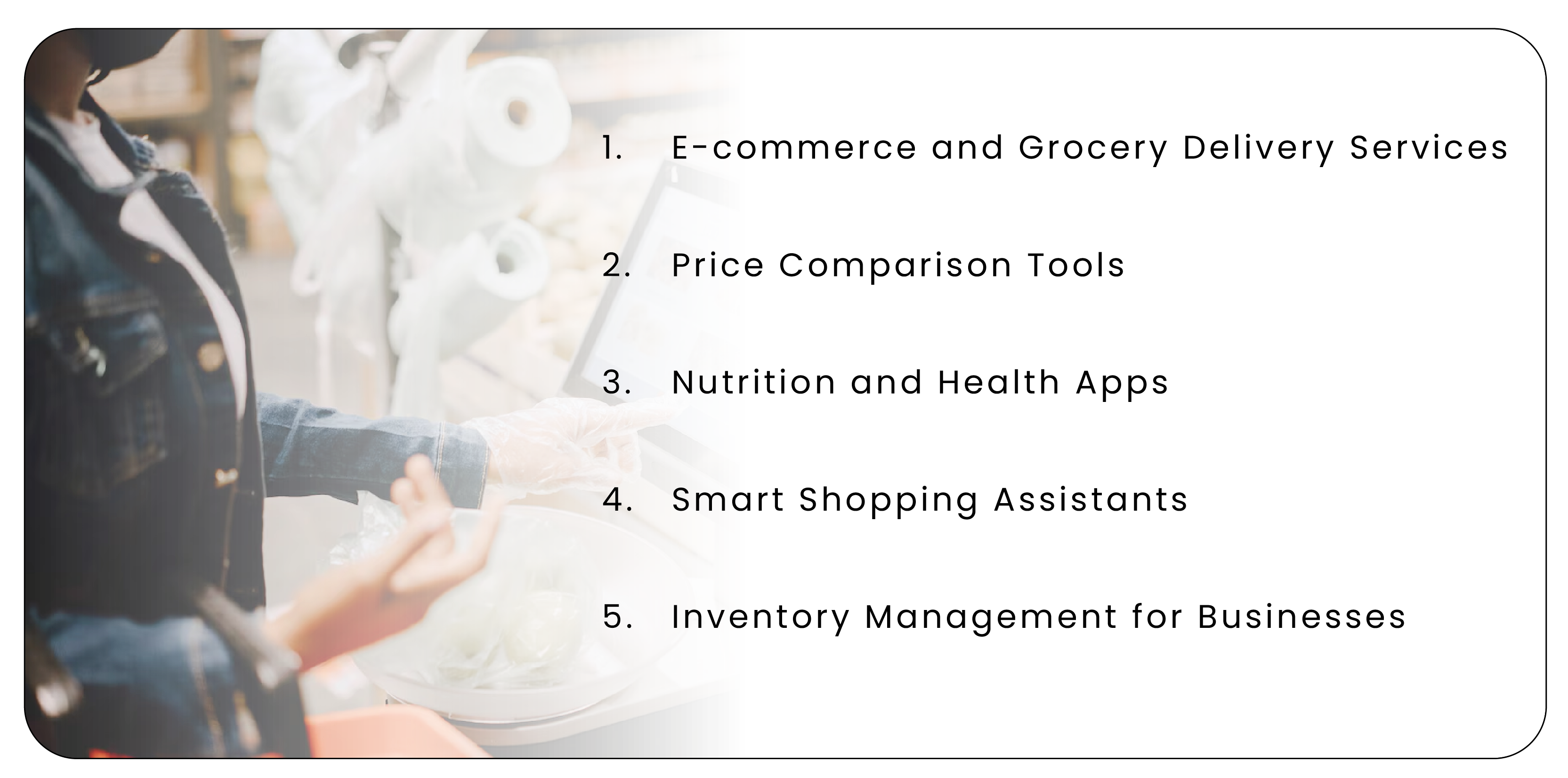
Grocery store APIs power various applications, including price comparison tools, inventory management systems, online grocery platforms, and delivery tracking solutions. Businesses leverage these APIs for real-time product data, competitive analysis, personalized recommendations, and seamless integration with e-commerce and retail systems.
1. E-commerce and Grocery Delivery Services
Online grocery platforms and food delivery services depend on grocery store APIs to enhance the shopping experience. These APIs allow platforms to retrieve real-time product details, update pricing dynamically, and manage customer orders seamlessly. By integrating grocery APIs, businesses can ensure accurate stock availability, optimize delivery schedules, and improve user experience with smooth checkout processes. Popular supermarkets like Tesco, Sainsbury's, and ASDA utilize such APIs to power their e-commerce operations and food delivery services.
2. Price Comparison Tools
Third-party price comparison websites use grocery APIs to give consumers real-time price updates from multiple supermarkets. These tools enable shoppers to compare prices across different stores, identify ongoing discounts, and make cost-effective purchasing decisions. With automated data retrieval, consumers can stay informed about price fluctuations, helping them maximize savings while grocery shopping.
3. Nutrition and Health Apps
Health and wellness applications integrate grocery APIs to provide users with comprehensive nutritional insights. These APIs help users filter food products based on dietary preferences, allergens, and health concerns. For instance, a health-conscious consumer can use these apps to track calorie intake, avoid allergens, or find organic and gluten-free products. By linking grocery APIs with fitness and diet tracking apps, users can make informed food choices tailored to their lifestyle.
4. Smart Shopping Assistants
AI-driven shopping assistants leverage grocery APIs to provide personalized grocery recommendations, suggest meal plans, and automate shopping lists. These virtual assistants analyze users' purchasing behavior and dietary preferences to offer tailored product suggestions. Whether it's recommending budget-friendly alternatives or auto-populating grocery lists based on frequently bought items, AI-powered assistants enhance convenience and efficiency in online grocery shopping.
5. Inventory Management for Businesses
Restaurants, catering services, and grocery retailers integrate grocery APIs to streamline inventory management. These APIs provide real-time stock updates, ensuring businesses can track ingredient availability, reduce waste, and optimize procurement. Automated inventory tracking helps restaurants maintain adequate ingredient supplies, while grocery retailers can adjust stock levels based on demand patterns, preventing overstocking or shortages. Businesses that rely on bulk purchasing, such as catering companies, benefit from these APIs by ensuring smooth supply chain operations and efficient order fulfillment.
Challenges and Considerations
- API Accessibility and Cost: Not all grocery retailers offer public APIs; some may charge for access. Businesses need to evaluate cost structures and access policies before integration.
- Data Accuracy and Updates: Ensuring real-time data accuracy is crucial for seamless operations. APIs should be well-maintained to prevent discrepancies in stock levels and pricing.
- Security and Compliance: Handling customer data requires strict adherence to data privacy laws, including GDPR. Retailers must ensure secure API connections to protect user information.
- Integration Complexity: Developers must consider API documentation quality and integration complexity, as poorly structured APIs can lead to development delays.
Future of Grocery Store APIs in the UK
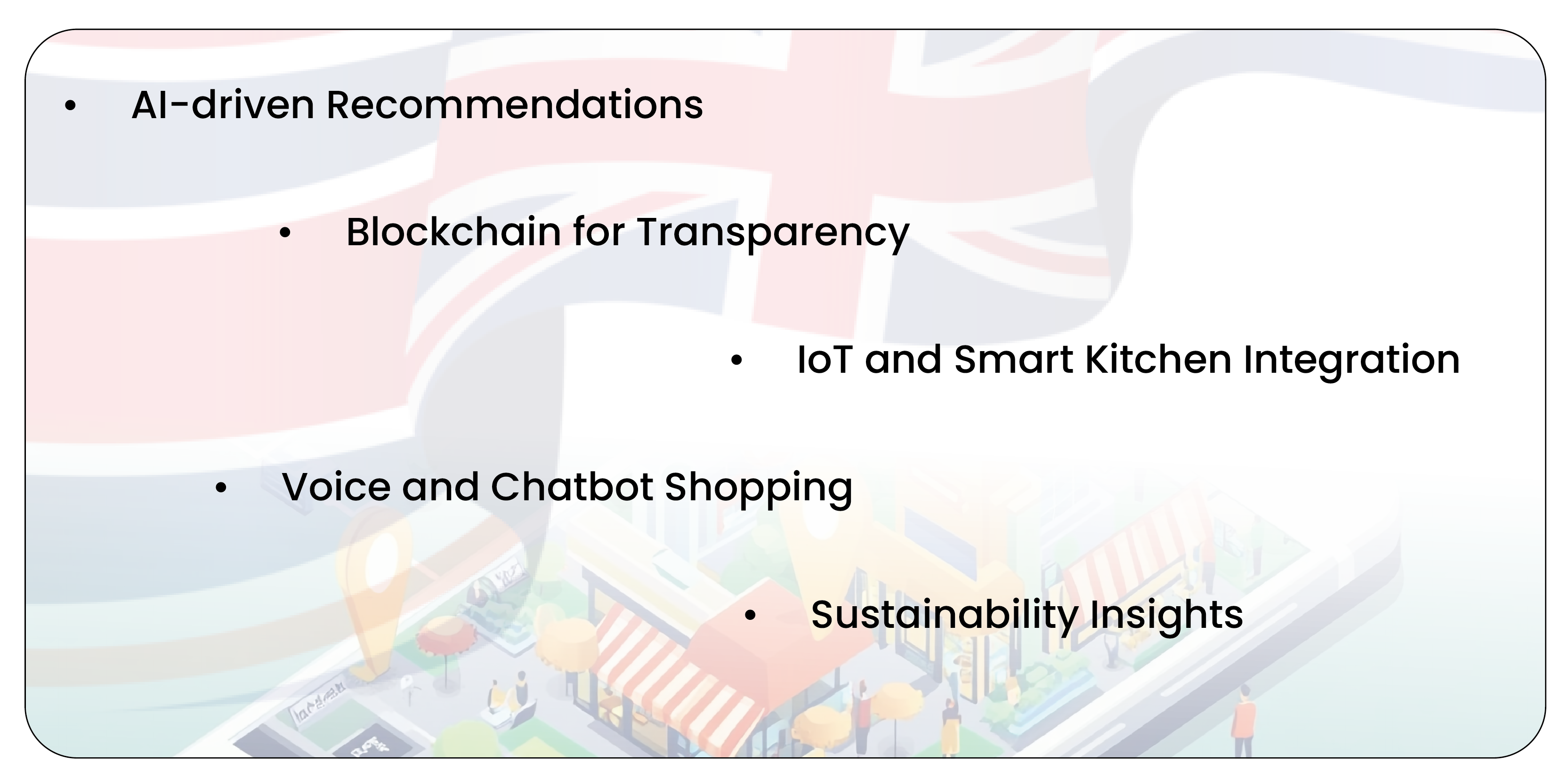
As technology continues to evolve, the future of grocery store APIs will be shaped by:
- AI-driven Recommendations: More personalized shopping experiences through AI and machine learning integrations.
- Blockchain for Transparency: Using blockchain technology, secure, tamper-proof grocery supply chain tracking.
- IoT and Smart Kitchen Integration: API-driven smart kitchen appliances automatically reorder groceries when supplies run low.
- Voice and Chatbot Shopping: Voice assistants and chatbots integrated with grocery store APIs for hands-free shopping.
- Sustainability Insights: APIs provide carbon footprint data on grocery products, helping consumers make eco-friendly choices.
Why Leverage Product Data Scrape for Scraping Needs?
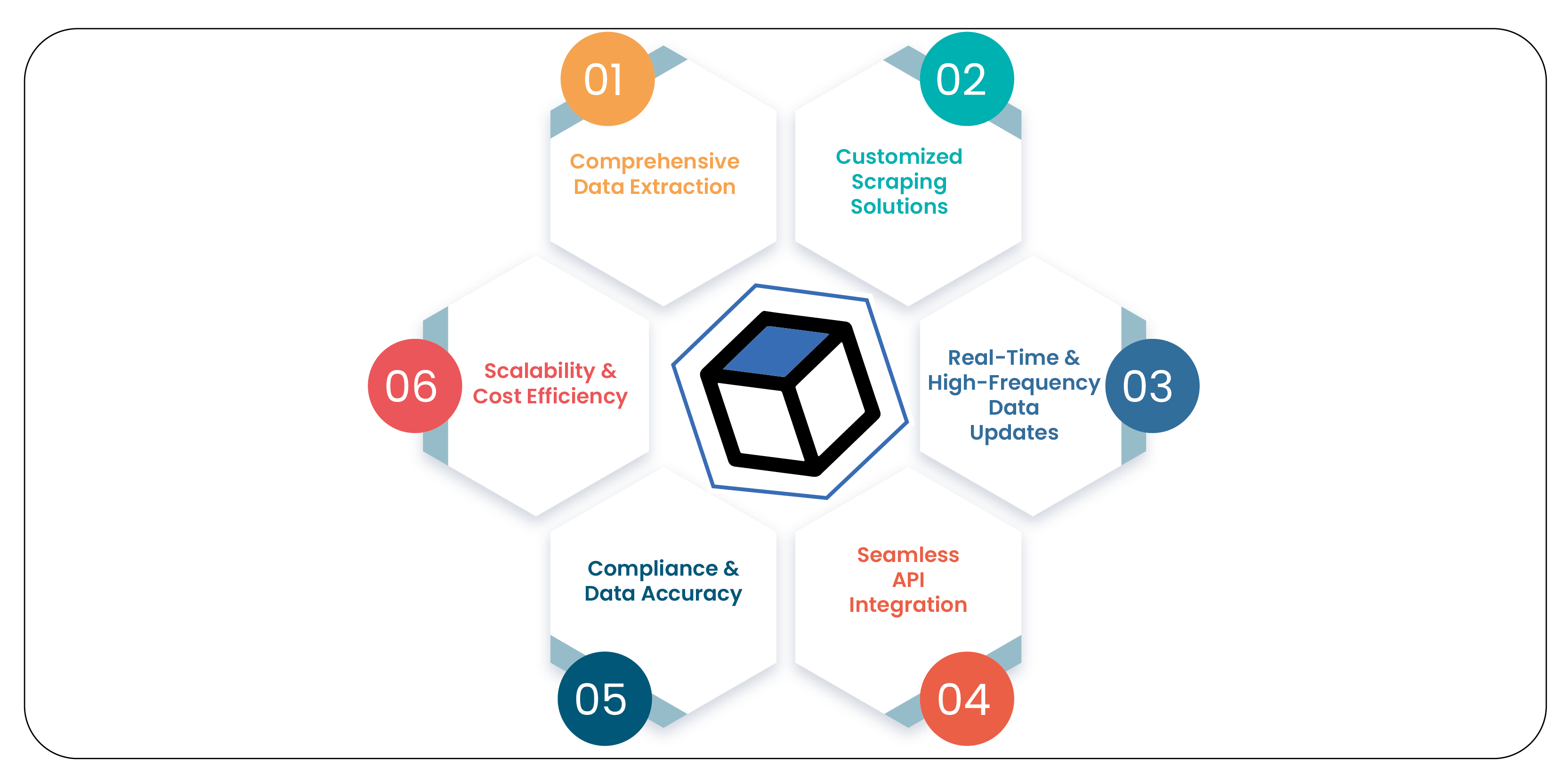
1. Comprehensive Data Extraction: We specialize in extracting vast amounts of structured data, ensuring businesses can access real-time insights from grocery stores, e-commerce platforms, and restaurant menus. Our solutions help Extract Grocery & Gourmet Food Data, including pricing, stock availability, and product descriptions, empowering businesses with accurate and actionable intelligence.
2. Customized Scraping Solutions: Every business has unique data requirements. Our services offer tailor-made scraping solutions, allowing clients to collect specific datasets based on their needs. Whether it's eCommerce Dataset Scraping for product analytics or monitoring competitor pricing, we deliver customized data solutions that align with business goals.
3. Real-Time & High-Frequency Data Updates: With advanced automation, we provide real-time and high-frequency data updates, ensuring businesses stay ahead of market trends. From Supermarket Price Intelligence UK to tracking grocery delivery platforms, our scraping services allow businesses to make data-driven decisions with up-to-date information.
4. Seamless API Integration: Our scraping solutions integrate with various business applications, analytics tools, and dashboards seamlessly. Whether you need a UK Online Grocery Scraping API for fetching grocery store data or insights into customer trends, our APIs ensure smooth data flow for enhanced operational efficiency.
5. Compliance & Data Accuracy: We prioritize ethical data scraping, adhering to compliance standards, and ensuring high data accuracy. With robust quality checks and validation processes, businesses can trust our E-commerce data extraction services to provide reliable and legally compliant datasets without risks of misinformation.
6. Scalability & Cost Efficiency: Our scraping services are built to scale, catering to startups, SMEs, and large enterprises. Whether businesses require bulk data extraction for a market analysis or periodic updates for competitive pricing strategies, our solutions offer cost-effective and scalable data collection to drive business growth.
Conclusion
Grocery store APIs are revolutionizing the UK grocery industry by enabling seamless integration between retailers, developers, and consumers. With benefits ranging from real-time inventory management to personalized shopping experiences, these APIs are essential for businesses looking to optimize their grocery operations. Additionally, companies can Extract Grocery & Gourmet Food Data to gain valuable insights into consumer preferences, pricing trends, and stock availability, improving decision-making and operational efficiency.
Despite challenges such as API accessibility and data accuracy, continuous advancements in AI, blockchain, and IoT are set to enhance API capabilities further, making them indispensable tools for the future of online grocery shopping. As consumer expectations for convenience and efficiency grow, the adoption of grocery store APIs will continue to accelerate, shaping the future of digital grocery retail in the UK.
At Product Data Scrape, we strongly emphasize ethical practices across all our services, including Competitor Price Monitoring and Mobile App Data Scraping. Our commitment to transparency and integrity is at the heart of everything we do. With a global presence and a focus on personalized solutions, we aim to exceed client expectations and drive success in data analytics. Our dedication to ethical principles ensures that our operations are both responsible and effective.






































.webp)






